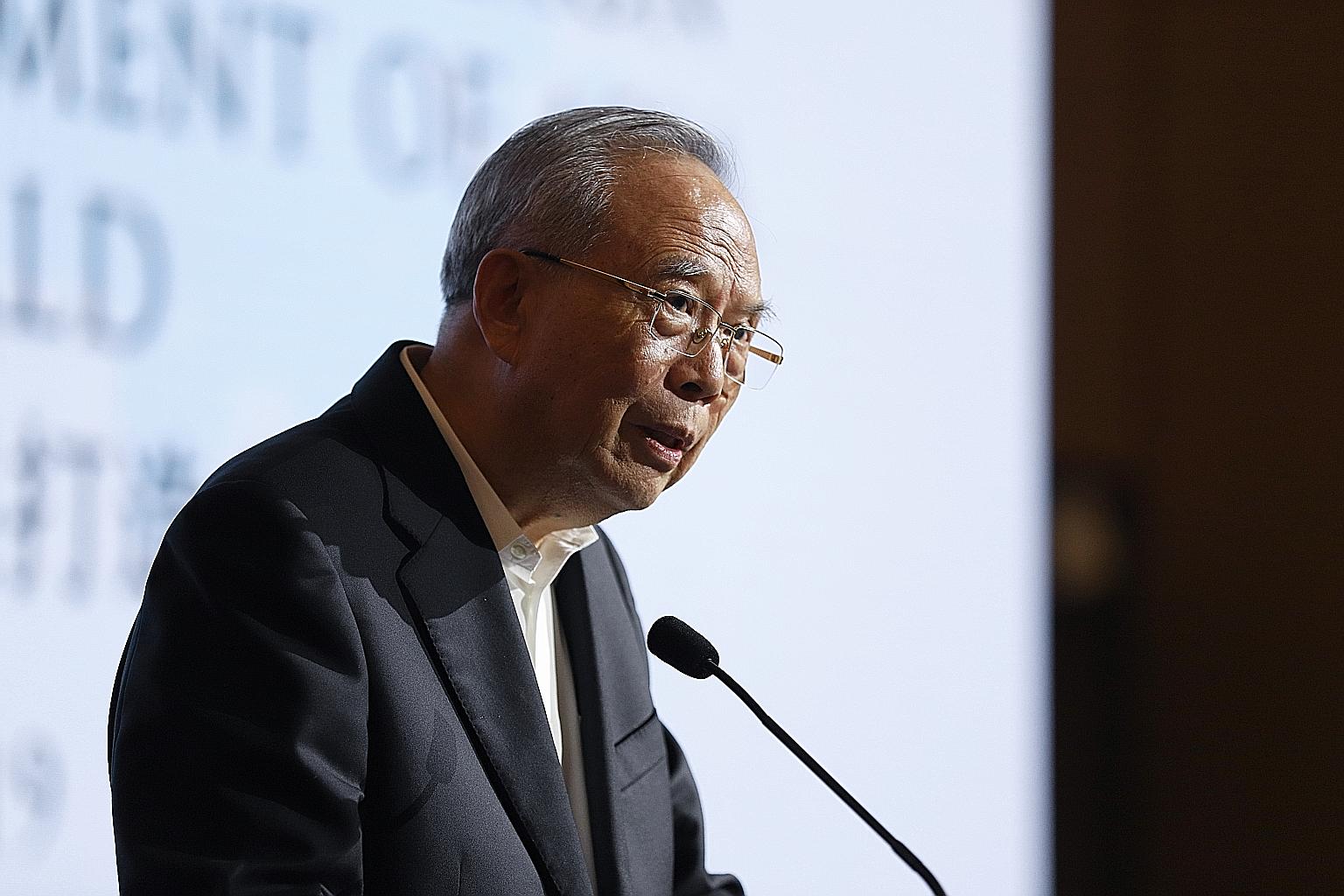Call for China, US to oppose decoupling
Sign up now: Get ST's newsletters delivered to your inbox

Former Chinese vice-premier Zeng Peiyan says China, the US and the world need the two giant economies to cooperate rather than decouple. He believes that if decoupling is left unchecked, "it would be a disaster for both China and the United States and the whole world".
ST PHOTO: MARCELLIN LOPEZ
Whether it be economic well-being, global value chains, science and technology advancement or the supply of global public goods, China, the US and the world need the two giant economies to cooperate rather than decouple, said a former Chinese vice-premier.
If decoupling is left unchecked "it would be a disaster for both China and the United States and the whole world", warned Mr Zeng Peiyan.
He called for the two sides to oppose decoupling and step up cooperation, which is the only option that serves the interests of their people.
However, the Brookings Institution's Dr Bruce Jones said that, even if both were to make serious progress in resolving their economic ties, it will not remove all the issues in their relationship.
"China has reached the point where it has global interests and will now seek to have a global security capacity to protect those interests. That's natural but it naturally pushes the United States and China into a serious source of tension with one another", given the role the US has played in securing global trade and energy flows among other things.
"I don't think we are seeing nearly enough investment by either side in bilateral diplomacy or the multilateral architecture needed to manage that set of relationships and inevitable tension between them," he said.
Dr Jones and Mr Zeng were speaking yesterday at a symposium on China-US ties jointly organised by China Centre for International Economic Exchanges, Brookings Institution of the US and Singapore's Lee Kuan Yew School of Public Policy.
Mr Zeng, who is chairman of the centre, said China and the US had benefited from 40 years of opening up their markets to each other and increasingly closer cooperation, with China's economy growing around 9 per cent a year in that time and the US seeing an almost threefold rise in its economic aggregate.
The spillover effects of their economic cooperation had facilitated development in the Asia-Pacific region and the rest of the world.
Their trade frictions, however, have hurt both economies and that of the world.
China's growth has slowed to 6.2 per cent in the first three quarters of this year, signs of recession are emerging in the US economy and global growth for the year is forecast to be at 3 per cent, its slowest since the 2008 financial crisis.
The push to decouple would lead to a breakdown of the complex global value chain and building a separate independent and exclusive industrial system will be costly and less efficient, Mr Zeng said.
Also, decoupling will not change the status of the US trade deficit, he added, pointing out that, in the first six months of this year, the US trade deficit had gone up by 8 per cent instead of going down.
On a more positive note, former Thai deputy prime minister Surakiart Sathirathai said Asia - including Asean - is taking the lead in demonstrating an old Confucius adage: "when you collaborate you win, when you fight you lose".
He said significant multilateralism and free trade agreements in Asia-Pacific are taking shape and will become the foundation of Asian economic well-being, citing, among others, the soon-to-be concluded Regional Comprehensive Economic Partnership.
"The world still needs both multilateral and globalised cooperation to turn conflict into cooperation and collaboration," he added.


